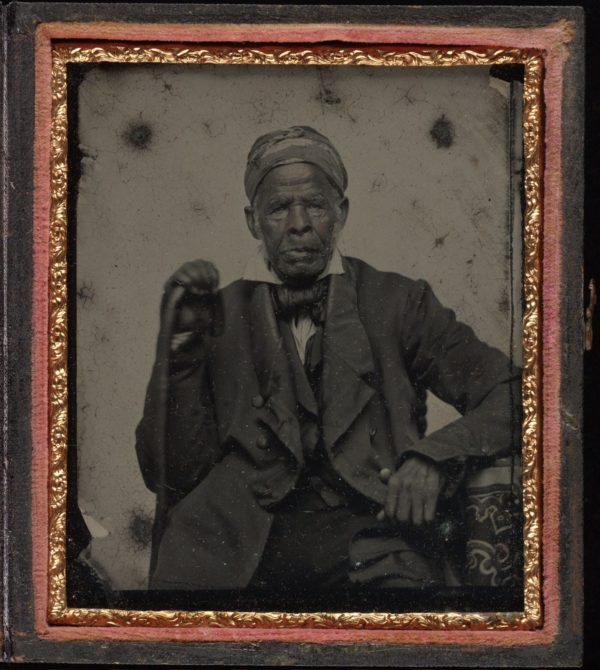Today was to be a celebratory day for the Gibbes Museum. Our much-anticipated exhibition Fred Wilson: Afro Kismet, organized by Wilson and Pace Gallery, New York, was set to open on May 15. We were thrilled to bring the world-renowned artist and MacArthur Fellow back to Charleston following his impactful presentation last November at our Distinguished Lecture Series. Unfortunately the universe interrupted our schedule and the recent shut-down due to COVID-19 has upturned the best laid spring and summer plans for most institutions. In light of the uncertainty that lies ahead, the Gibbes made the difficult decision to cancel this exhibition for summer 2020 and we are now working on plans to bring Wilson’s artwork to Charleston in 2021.
Fred Wilson is acclaimed for his powerful work that consistently challenges assumptions of history, culture, race, and conventions of museum display. By reframing objects and cultural symbols, Wilson calls attention to inaccuracies and discrepancies in traditional social and historical narratives, which often invisibly gird institutional inequities in our society. As Charleston and our nation grapples with its history of race-based slavery, Jim Crow segregation, and systemic racial inequalities, the Gibbes strives to present quality art exhibitions and experiences that illuminate these important dialogues.

One of the most exciting aspects of the exhibition centered around our partnership with Spoleto Festival, USA, and included a new installation by Fred Wilson inspired by the story of Omar Ibn Said. Said, an African-Muslim man who was kidnapped in Senegal, transported to Charleston, and sold into slavery in 1807, documented his life story in an autobiography written in Arabic. Alongside Said’s original autobiographical text, now held in the Library of Congress archives, and historic photographs of Said, held at the University of North Carolina, Chapel Hill, and Yale University libraries, Wilson had planned to create new work highlighting the stories of Said, and other African-Muslims who used their faith and bilingual literacy to build community, resist slavery, and pursue freedom.
The connection between Afro Kismet and the festival was to be the world premiere of a Spoleto Festival USA opera based on the memoir of Omar Ibn Said written by Rhiannon Giddens, a Grammy Award winner and MacArthur Fellow, and co-composed by Michael Abels, who wrote the score to Jordan Peele’s Oscar winning film Get Out. Due to the COVID-19 pandemic, Spoleto Festival, USA, was forced to cancel the 2020 festival, but has rescheduled the opera Omar to debut during Spoleto’s 2021 season (May 28 – June 13). The Gibbes hopes to present works from Fred Wilson next spring and will again create opportunities for conversation surrounding these important stories, how they intersect, and resonate in today’s world.
Published May 15, 2020
Top image: Installation View of Fred Wilson: Afro Kismet; 510 West 25th Street, New York, NY; July 10–August 17, 2018; Photography by Tom Barratt, Courtesy of Pace Gallery; ©Fred Wilson, courtesy Pace Gallery.

